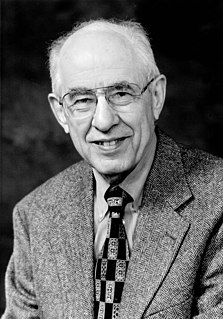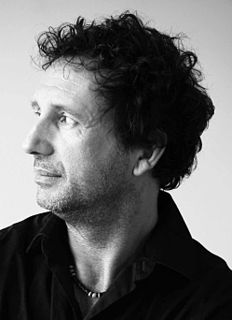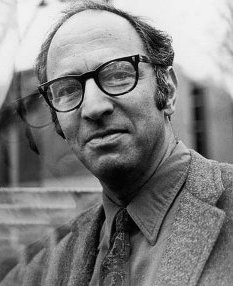Events
| | This section is empty. You can help by adding to it. (July 2010) |
| |||
|---|---|---|---|
1976 in philosophy
| | This section is empty. You can help by adding to it. (July 2010) |
| | This section is empty. You can help by adding to it. (July 2010) |
Semantics is the study of meaning, reference, or truth. The term can be used to refer to subfields of several distinct disciplines, including philosophy, linguistics and computer science.

Hilary Whitehall Putnam was an American philosopher, mathematician, and computer scientist, and a major figure in analytic philosophy in the second half of the 20th century. He made significant contributions to philosophy of mind, philosophy of language, philosophy of mathematics, and philosophy of science. Outside philosophy, Putnam contributed to mathematics and computer science. Together with Martin Davis he developed the Davis–Putnam algorithm for the Boolean satisfiability problem and he helped demonstrate the unsolvability of Hilbert's tenth problem.

Analytic philosophy is a branch and tradition of philosophy using analysis, popular in the Western World and particularly the Anglosphere, which began around the turn of the 20th century in the contemporary era in the United Kingdom, United States, Canada, Australia, New Zealand and Scandinavia and continues today.

John Henry McDowell is a South African philosopher, formerly a Fellow of University College, Oxford and now University Professor at the University of Pittsburgh. Although he has written on metaphysics, epistemology, ancient philosophy, and meta-ethics, McDowell's most influential work has been in the philosophy of mind and philosophy of language. McDowell was one of three recipients of the 2010 Andrew W. Mellon Foundation's Distinguished Achievement Award, and is a Fellow of both the American Academy of Arts & Sciences and the British Academy.

Charles Margrave Taylor is a Canadian philosopher from Montreal, Quebec, and professor emeritus at McGill University best known for his contributions to political philosophy, the philosophy of social science, the history of philosophy, and intellectual history. His work has earned him the Kyoto Prize, the Templeton Prize, the Berggruen Prize for Philosophy, and the John W. Kluge Prize.
Roderick Milton Chisholm was an American philosopher known for his work on epistemology, metaphysics, free will, value theory, and the philosophy of perception.

Ordinary language philosophy is a philosophical methodology that sees traditional philosophical problems as rooted in misunderstandings philosophers develop by distorting or forgetting what words actually mean in everyday use. "Such 'philosophical' uses of language, on this view, create the very philosophical problems they are employed to solve." Ordinary language philosophy is a branch of linguistic philosophy closely related to logical positivism.
Laurence BonJour is an American philosopher and Emeritus of Philosophy at the University of Washington.
Jennifer Hornsby, FBA is a British philosopher with interests in the philosophies of mind, action, language, as well as feminist philosophy. She is currently a professor at the School of Philosophy, Birkbeck, University of London. She is well known for her opposition to orthodoxy in current analytic philosophy of mind, and for her use of J. L. Austin's Speech Act Theory to look at the effects of pornography.
Jonathan Francis Bennett is a philosopher of language and metaphysics, specialist of Kant's philosophy and a historian of early modern philosophy. He has New Zealand citizenship by birth and has since acquired UK and Canadian citizenship.

Stephen Roy Albert Neale is a British philosopher and specialist in the philosophy of language who has written extensively about meaning, information, interpretation, and communication, and more generally about issues at the intersection of philosophy and linguistics. Neale is a Distinguished Professor of Philosophy and Linguistics and holder of the John H. Kornblith Family Chair in the Philosophy of Science and Values at the Graduate Center, City University of New York (CUNY).

Horace Romano "Rom" Harré, was a New Zealand-British philosopher and psychologist.

In analytic philosophy, philosophy of language investigates the nature of language, the relations between language, language users, and the world. Investigations may include inquiry into the nature of meaning, intentionality, reference, the constitution of sentences, concepts, learning, and thought.

Philosophy is the study of general and fundamental questions, such as those about existence, reason, knowledge, values, mind, and language. Such questions are often posed as problems to be studied or resolved. Some sources claim the term was coined by Pythagoras ; others dispute this story, arguing that Pythagoreans merely claimed use of a preexisting term. Philosophical methods include questioning, critical discussion, rational argument, and systematic presentation.

James Opie Urmson, usually cited as J. O. Urmson, was a philosopher and classicist who spent most of his professional career at Corpus Christi College, Oxford. He was a prolific author and expert on a number of topics including British analytic/linguistic philosophy, George Berkeley, ethics, and Greek philosophy.
Jeremy Nicholas Butterfield FBA is a philosopher at the University of Cambridge, noted particularly for his work on philosophical aspects of quantum theory, relativity theory and classical mechanics.

Thomas Samuel Kuhn was an American philosopher of science whose 1962 book The Structure of Scientific Revolutions was influential in both academic and popular circles, introducing the term paradigm shift, which has since become an English-language idiom.
1971 in philosophy

Logic is an interdisciplinary field which studies truth and reasoning. Informal logic seeks to characterize valid arguments informally, for instance by listing varieties of fallacies. Formal logic represents statements and argument patterns symbolically, using formal systems such as first order logic. Within formal logic, mathematical logic studies the mathematical characteristics of formal logical systems, while philosophical logic applies them to philosophical problems such as the nature of meaning, knowledge, and existence. Systems of formal logic are also applied in other fields including linguistics, cognitive science, and computer science.
Australian philosophy refers to the philosophical tradition of the people of Australia and of its citizens abroad. Academic philosophy has been mostly pursued in universities. It has been broadly in the tradition of Anglo-American analytic philosophy, but has also had representatives of a diverse range of other schools, such as idealism, Catholic neo-scholasticism, Marxism, and continental, feminist and Asian philosophy.